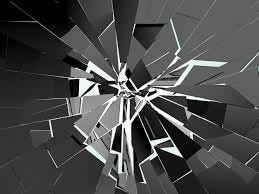In the aftermath of the election last week, I’ve been thinking a lot about the question of community - not just the role that communities play in our health and resilience, but how we can better build and maintain more meaningful communities.
Obviously, a lot of people found the results of the U.S. presidential elections disturbing on some level. One trend that I noticed almost immediately was that people who belonged to minority cultures talked almost immediately about finding meaning, culture and connection in their “communities.” Straight white women like myself didn’t seem to do that - they seemed to default to a sense of isolation. Obviously that’s not anything like a scientific observation, but it struck me hard — in part because I was feeling my own lack of that kind of community pretty acutely.
I have multiple communities, of course. I live in a neighborhood, within a village, within a metro area. I have a nuclear and an extended family. I am part of several professional organizations, an Episcopal church (which is itself part of a bigger organization) and several groups of people that I work with on various projects.
With all of those communities, what was I missing at a time when I, personally, felt that I needed it?
I spend several days chewing over that question. I watched Black, Latina, LGBTQ+ people and more talk online about the comfort and strength and support that they received from their communities. I had a long exchange on BlueSky with a person who deals with massive social anxiety who helped me understand how online communities can provide direct mutual aid when members need it. And when I asked a committee that I co chair at church, I heard this, from my notes:
Community is place where you can be yourself, be honest, not hide who you are. Knowing each other. Seeing each other. Shared purpose/mission. Guide. Empathy.
May not agree on everything, but will teach me to be that way.
And I had a sinking realization that the “communities” that I write about don’t actually act like communities at all. Far too often, the “communities” that you and I have the most experience with …aren’t like that description at all.
Maybe that’s unfair. Maybe it’s unreasonable to expect the polis to be this kind of touchy-feeling supportive thing - thing that I know I need, but I’m still uncomfortable with needing, or talking about.
But maybe that’s part of what’s missing, of why people are so often frustrated by - and distrustful of - the communities that are among the closest to them. Maybe we sense that the concept of “community” has been betrayed. Maybe that’s by being treated like a customer instead of a co-creator. Maybe that’s by being treated as a passive, de-activated recipient instead of an active force with agency to help form the community around us into something that meets those lofty goals.
I think this is something that I will be chewing over for a long time to come. Somehow, in ways that I haven’t fully untangled yet, I have a hunch that one part of our political and cultural dysfunction at this moment in time stems from the atrophying of this kind of community. Or maybe as these kinds of communities became more diverse in all dimensions, with a wider array of voices, some of us withdrew from that idea of community and turned it into something safer, blander and more useless.
I came to realize this week that living a life without a meaningful community, like the ones my committee described, is a marker of privilege. If you are comfortable, it might seem OK to let those kinds of life-supporting communities atrophy into membership badges, gossip mills or grounds for continual skirmishes.
Until you’re not so privileged anymore. And then the black hole where your community should be dominates your view.
As I mentioned, I am still grappling with these ideas, and what they might mean for the less community-like communities — and whether or not the two ought to be the same in the first place.
I would really love to know what you think.


